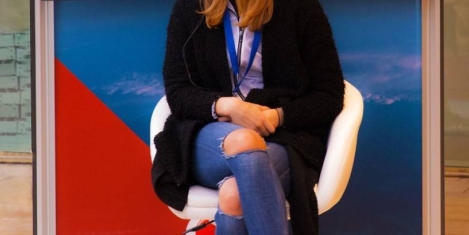October 5, 2018
Learning to learn will be key skill in new world of work
 A joint report by the Secretariat of the All Party Parliamentary Group on AI, Big Innovation Centre, and professional services firm KPMG has been published, identifying the key skills individuals and organisations will need if they are to survive and thrive in the unfolding future. The report finds that jobs in the labour market of the future will look very different from today and the transformation is likely to be dramatic. It also calls for companies and governments to equip citizens and employees for that future, to help them learn the new skills needed to be relevant in a world of constant transformation.
A joint report by the Secretariat of the All Party Parliamentary Group on AI, Big Innovation Centre, and professional services firm KPMG has been published, identifying the key skills individuals and organisations will need if they are to survive and thrive in the unfolding future. The report finds that jobs in the labour market of the future will look very different from today and the transformation is likely to be dramatic. It also calls for companies and governments to equip citizens and employees for that future, to help them learn the new skills needed to be relevant in a world of constant transformation.











 Employee motivation levels appear to be the decline, with 29 percent of employees surveyed saying they were not motivated at work in 2017 compared to just 18 percent who said the same in 2016 the research report, “Living to Work” has claimed. Motivates Inc. has commissioned its employee motivation research for the past three years, surveying over 2,000 UK employees in full-time employment. The full data shows like-for-like how employees are feeling in the workplace and what hygiene factors have affected behaviours year-on-year. According to the latest data 71 percent of UK employees were motivated in 2017, which on its own shows a positive result, yet when you look at the motivational statistics from 2016 the data actually shows the percentage of motivated employees has dropped by 11 percent in just one year. That’s 220 more employees in an organisation of 2,000 who are not feeling good about their job.
Employee motivation levels appear to be the decline, with 29 percent of employees surveyed saying they were not motivated at work in 2017 compared to just 18 percent who said the same in 2016 the research report, “Living to Work” has claimed. Motivates Inc. has commissioned its employee motivation research for the past three years, surveying over 2,000 UK employees in full-time employment. The full data shows like-for-like how employees are feeling in the workplace and what hygiene factors have affected behaviours year-on-year. According to the latest data 71 percent of UK employees were motivated in 2017, which on its own shows a positive result, yet when you look at the motivational statistics from 2016 the data actually shows the percentage of motivated employees has dropped by 11 percent in just one year. That’s 220 more employees in an organisation of 2,000 who are not feeling good about their job.
 Almost half (49 percent) of UK workers are in jobs they are either under- or over-skilled for, according to new research from the CIPD. Its report ‘Over-skilled and underused: Investigating the untapped potential of UK skills’ surveyed 3,700 UK employees and found that more than a third (37 percent) of workers have the skills to cope with more demanding duties than they currently have. At the opposite end of the scale, one in ten (12 percent) employees said they lacked all the skills needed to carry out their job effectively. This means that as many as half (49 percent) of UK workers could be in the wrong job, based on their skill level. The UK has one of most skilled workforces in the world, with 42 percent of workers qualified to degree level, yet it also has the highest proportion of jobs within the OECD which require no qualifications at all.
Almost half (49 percent) of UK workers are in jobs they are either under- or over-skilled for, according to new research from the CIPD. Its report ‘Over-skilled and underused: Investigating the untapped potential of UK skills’ surveyed 3,700 UK employees and found that more than a third (37 percent) of workers have the skills to cope with more demanding duties than they currently have. At the opposite end of the scale, one in ten (12 percent) employees said they lacked all the skills needed to carry out their job effectively. This means that as many as half (49 percent) of UK workers could be in the wrong job, based on their skill level. The UK has one of most skilled workforces in the world, with 42 percent of workers qualified to degree level, yet it also has the highest proportion of jobs within the OECD which require no qualifications at all.
 At the
At the




 National Work Life Week (1st – 5th October 2018) starts today with the aim of encouraging companies to think about their employees’ wellbeing and happiness. To mark the week new research asked British workers about the things they most want from their work. The YouGov survey of 2,000 adults, commissioned by the Oxford Open Learning Trust, found that while money is predictably the biggest motivator behind career choice (64 percent), over half of the respondents cited working hours and flexible working as an important factor (55 percent).
National Work Life Week (1st – 5th October 2018) starts today with the aim of encouraging companies to think about their employees’ wellbeing and happiness. To mark the week new research asked British workers about the things they most want from their work. The YouGov survey of 2,000 adults, commissioned by the Oxford Open Learning Trust, found that while money is predictably the biggest motivator behind career choice (64 percent), over half of the respondents cited working hours and flexible working as an important factor (55 percent). 
 The majority (86 percent) of UK office workers claim they are more likely to be told off for forgetting to do menial tasks, like emptying or loading the dishwater and keeping their workplace tidy, than complying with GDPR policies, according to a new poll which assessed whether GDPR is being taken seriously by UK office workers since its introduction in May of this year. The study from Fellowes found that only 14 percent of workers have been given a ticking off about careless handling of confidential data, while 25 percent claim office chores, like emptying or filling the dishwasher, has landed them in the hottest water. The data, collected from over 1,000 UK office workers in July 2018, also reveals that many are more likely to be challenged about missing deadlines and being late (17 percent) than ensuring they are compliant with GDPR.
The majority (86 percent) of UK office workers claim they are more likely to be told off for forgetting to do menial tasks, like emptying or loading the dishwater and keeping their workplace tidy, than complying with GDPR policies, according to a new poll which assessed whether GDPR is being taken seriously by UK office workers since its introduction in May of this year. The study from Fellowes found that only 14 percent of workers have been given a ticking off about careless handling of confidential data, while 25 percent claim office chores, like emptying or filling the dishwasher, has landed them in the hottest water. The data, collected from over 1,000 UK office workers in July 2018, also reveals that many are more likely to be challenged about missing deadlines and being late (17 percent) than ensuring they are compliant with GDPR.











September 28, 2018
The horrors and harmonies of workplace hierarchy
by Monica Parker • Comment, Technology, Workplace design
More →